College Students Bring Joy to Seniors: A Beautiful Initiative During Challenging Times
The 'Get Chesed' project, born out of the COVID-19 pandemic, connects young students with lonely seniors, creating bonds that transcend age. Rabbi David Or shares touching stories, proving the project changes lives for all involved.
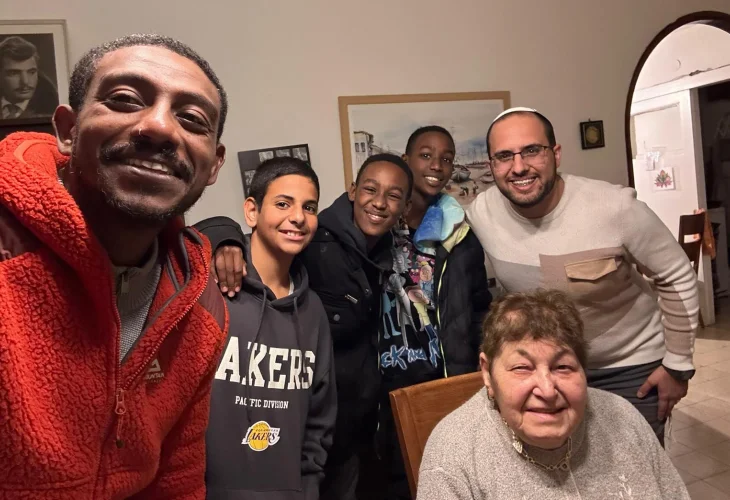
Imagine a lonely elderly person spending long hours at home without company. Maybe he lives on the second or third floor, and any trip to the pharmacy or grocery store feels like a massive undertaking. Perhaps he has family and children who can’t cook for him daily, leaving his days empty and dull.
Now imagine hearing a knock on his door. A young student is there, smiling and ready to hand him a warm lunch. But he’s not just delivering food; he sits down to chat, listen, and share moments of genuine warmth. This is the essence of the 'Get Chesed' initiative, a nationwide project organized by 'Chabad on Campus,' under the leadership of Rabbi Moshe Shilat, in collaboration with 'Colel Chabad.' The project connects students with elderly people across the country, forming a circle of giving and kindness.
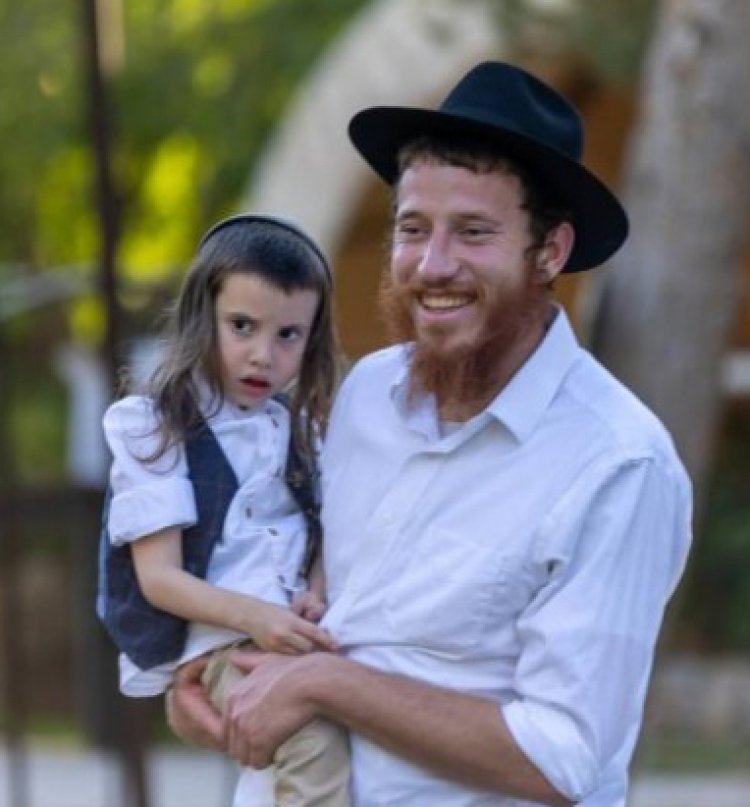 Rabbi Or
Rabbi Or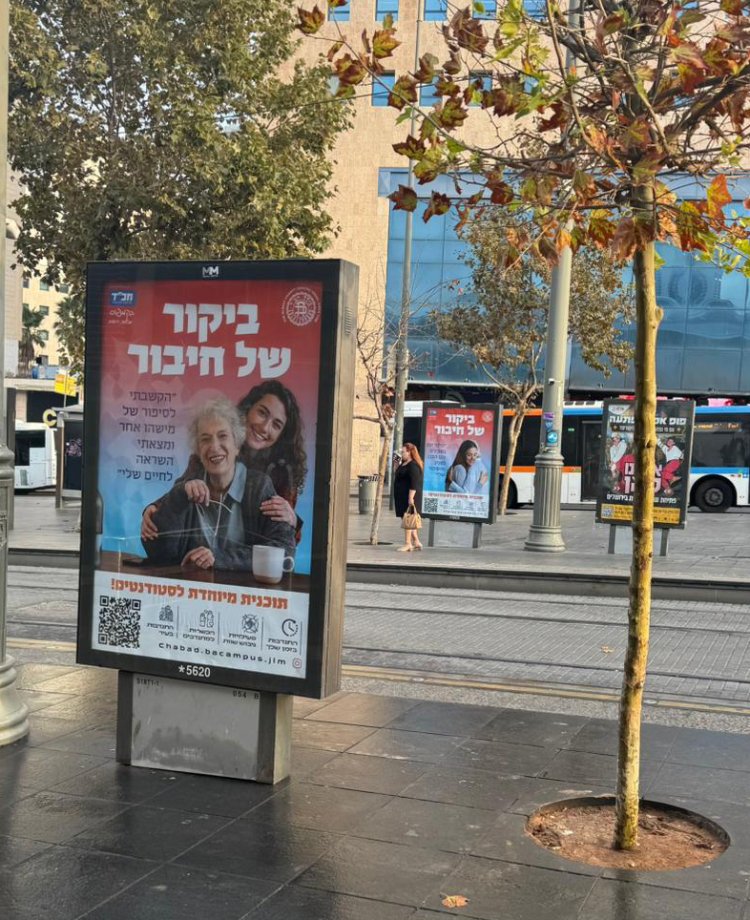
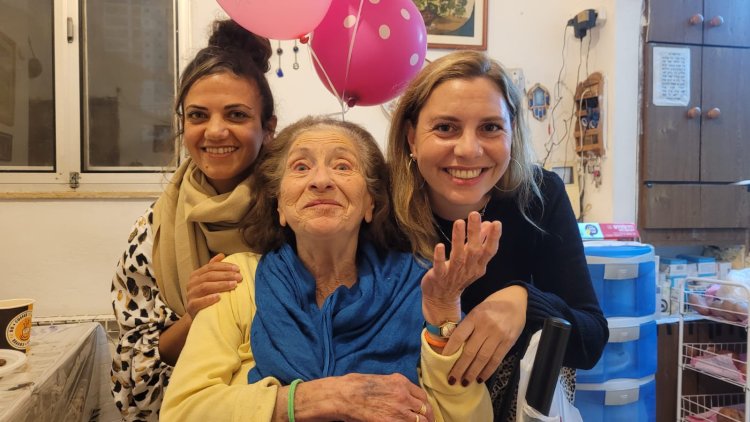
Finding Hope During the Pandemic
"Chabad on Campus is very active in academic institutions all over Israel," explains Rabbi David Or, who coordinates the 'Get Chesed' project. "Part of their work involves providing scholarships to students participating in activities around Jewish identity, including Torah study, study partners, and other programs. But the highlight is the personal connection formed between students and seniors, which we facilitate through 'Get Chesed.'"
How did the idea come about?
"It all started during the pandemic when many seniors were forced to stay confined at home, unable to go shopping or even say ‘good morning’ to someone. Some passed away not because of COVID, but because there was nobody to care for them. As an organization in touch with many students nationwide, we decided to connect them with the seniors to help alleviate their loneliness."
Rabbi Or notes that an effort meant for specific assistance has become a way of life that bridges generations and builds deep human connections. Even he couldn’t predict where this initiative would lead or the emotional stories that would arise.
"We have a student who began volunteering with a senior during the COVID period," he shares, "He was very active then but finished his studies in Jerusalem and left the city. One day I happened to visit the senior he used to help, and the senior excitedly recounted: ‘Do you remember Omer who volunteered here years ago?’ and then added: ‘Not a week goes by without a phone call from him, and whenever he’s in Jerusalem, he visits me, buys me fruits and vegetables from the market, always asking what I need and how he can help.'"
"It was so touching to hear because this senior hasn’t been able to leave his house for years. Recently, that senior passed away, and Omer, who now lives in a kibbutz and isn’t religious, took it upon himself to organize the memorial, distribute the *Tehillim* among friends, and lead all the activities done in the memory of his soul."
"Another senior we assist is a Holocaust survivor," Rabbi Or continues. "During the war, he was a small child, only three years old, hiding in barns. He doesn’t have many memories from those days but sees himself as the torchbearer of the last Holocaust survivors, feeling a great honor to represent them and share his story. Our volunteers visit him weekly, and apart from providing hot meals and listening to him, they also organize events and lectures where he shares his story, fulfilling this important mission together. The satisfaction is immense and this activity is so important."
And yes, sometimes it leads to particularly joyful events. "We even had a volunteer and a volunteer meet while each was helping in different places in the city center, and somehow they ended up occasionally visiting the same senior. This very perceptive senior spoke with them and suggested they meet. They eventually fell in love and got married, recently becoming proud parents of a lovely baby girl. The senior is very close to them and they say she’s just like a grandmother to their child."
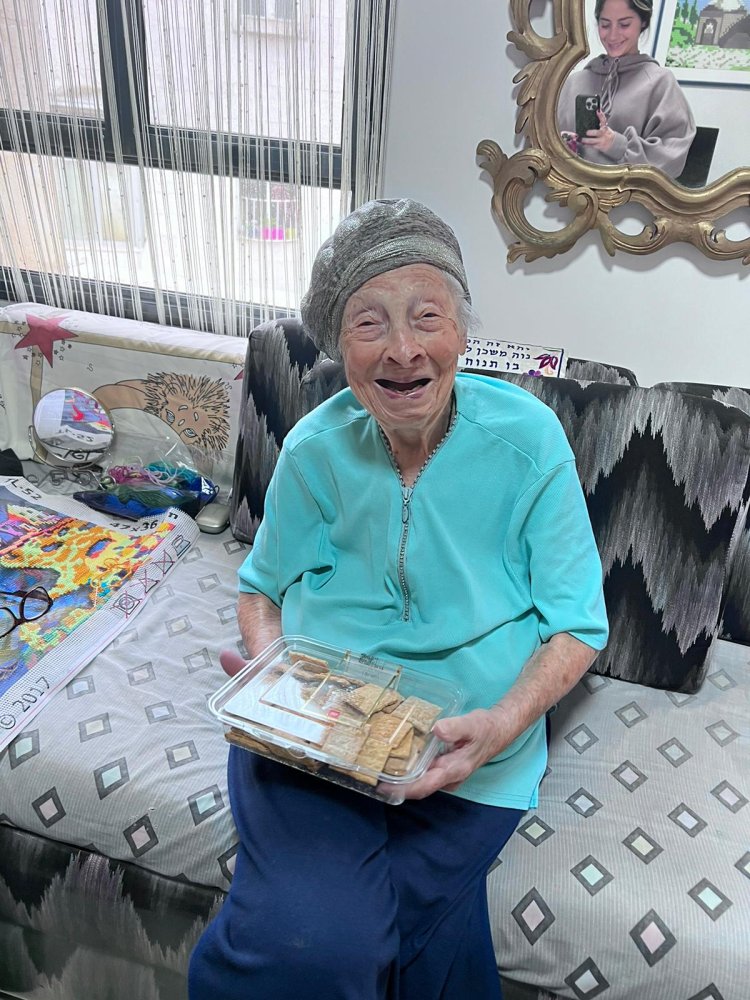
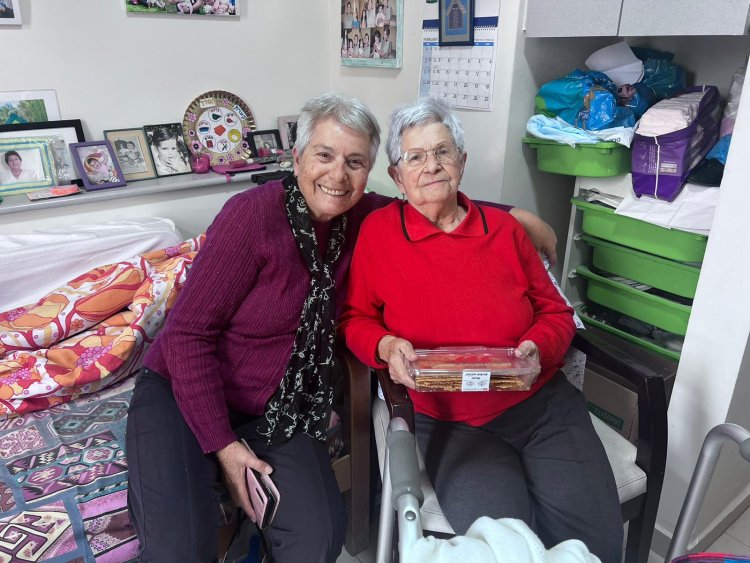
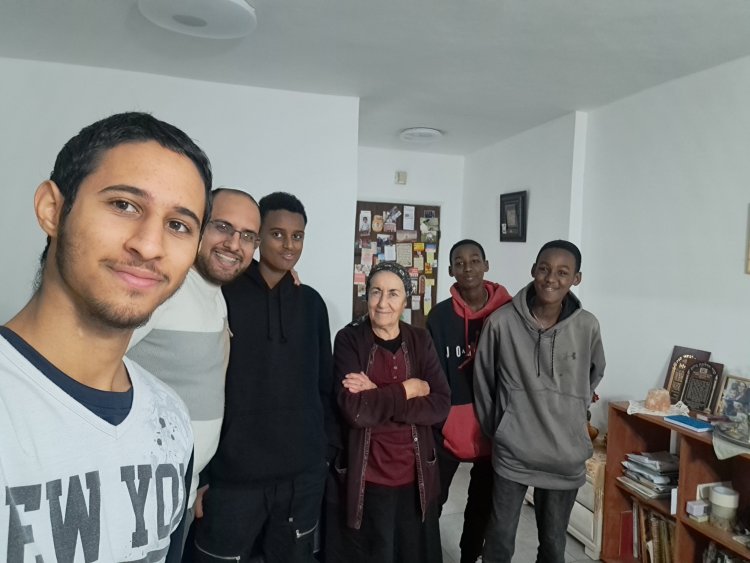
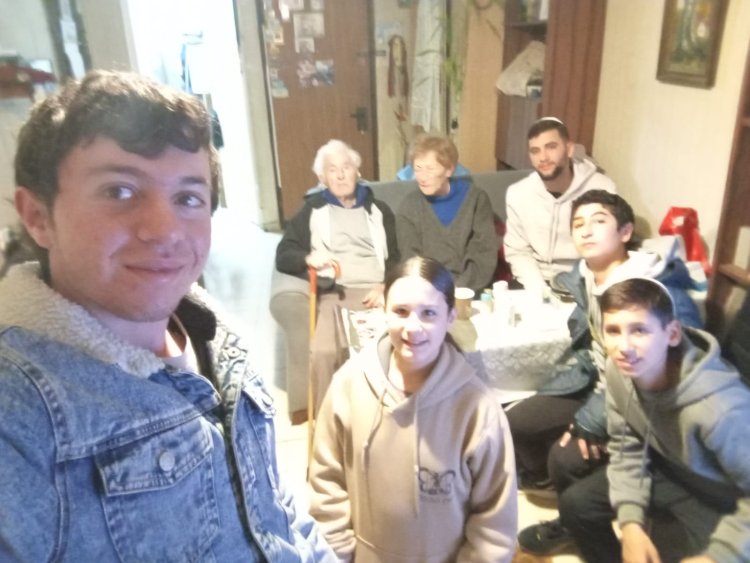
The Volunteering Experience
What does the actual volunteering look like? How do the volunteers help the seniors?
"Until recently, we had a distribution point in the city center with prepared meals and warm winter blankets. Our volunteers would pass by on their way to volunteer, equipped, and continue onward. Recently, we decided to make the supplies more accessible, placing branded refrigerators with a coordinator at each academic institution in Jerusalem. This way, students collect items directly from their school venues and head to volunteer activities, linking the volunteering environment closely to their learning environment."
With all the satisfaction, volunteers undoubtedly encounter some challenging situations. After all, we're talking about elderly people, some of whom are ailing and needy. It's not an easy volunteer task...
"True, it’s really not easy at all, but we do everything we can to provide a supportive framework for the volunteers. We organize regular meetings with professionals and doctors specializing in geriatric care, creating many discussion groups. Just last Chanukah, we organized a large event for volunteers, and I wondered which artist to bring. I decided the meeting among the volunteers should be central so they could express themselves, share their experiences, and exchange stories. It’s an important and vital process."
Besides, Rabbi Or emphasizes that, besides the extensive assistance the seniors receive, no doubt the students benefit greatly on a personal level. "These are students living through very busy schedules of studying and working for tuition aid. This project pushes them to pause and give as much of themselves as possible, through volunteering."
"I constantly hear from them how this project holds a central place in their lives, and I often think about how our students come from every field and background, and in ten or twenty years, they could become prominent figures in our country. That during a stage of learning their profession, they also built themselves up and honed their willingness to give, will certainly manifest publicly in the future. It’s a common cliché that 'giving is actually receiving,' but here I truly hear it repeatedly from volunteers and understand how accurate and true it is."

